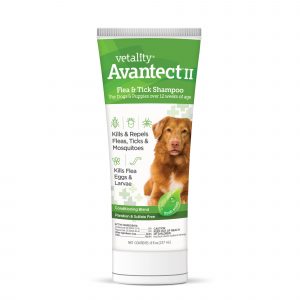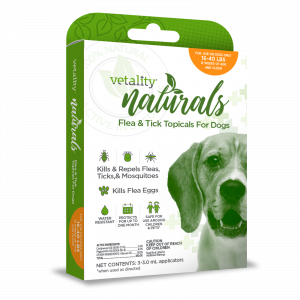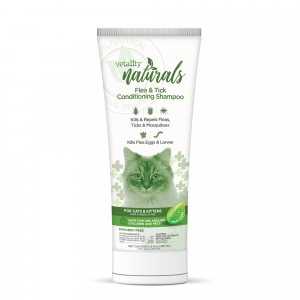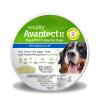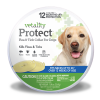New puppies are adorable! Who doesn’t love them? The thing is, getting a new puppy or adopting an older dog requires planning and forethought in order to create the best possible environment for your new family member. Welcome to our new blog series, Bringing Home Puppy, where we give you advice about choosing your new puppy, planning for her arrival, and, naturally, some helpful training tips. Our first article is all about where to get your new puppy. We’ll talk about where to look for a puppy, and where to avoid looking for one, so you’ll have a good chance of finding just the right new best friend!
What breed of puppy should I get?
The American Kennel Club recognizes over 200 dog breeds, so finding the perfect breed can seem overwhelming. Doing research and evaluating your lifestyle will help narrow down the options. Are you new to dogs, or do you have lots of experience? Do you want an active companion for hiking or running, or would you prefer a calmer cuddle-bug? How much does dog hair bother you? Also, what about small children? Some dog breeds are better than others around kids, so keep that in mind. The same goes for other dogs. Do you live in a house in the suburbs or an apartment in the city? Living in an apartment doesn’t necessarily mean you must get a small dog, but really energetic breeds may be happier if they have some space to run.
Think also about how much time you have for training your new puppy. Every puppy needs training and socializing, but some dog breeds will need more of these things than others, generally speaking. Finances are important to think about as well. Be sure you can afford vet care, quality food, and all the other supplies new puppies need before you bring one home. Each dog breed has an AKC standard, which describes its general appearance and temperament. You can see them all right here. If a purebred dog isn’t your thing, adopting from a shelter or good rescue group is also a great choice!
Where should I look for my new puppy?
Reputable dog breeders are the best way to go if you want a pure-bred puppy. These people are usually very passionate about their dogs and put a lot of time into each litter. If you choose a good breeder, your puppy’s parents will have been tested for common genetic issues before they were bred. This makes it far less likely that your puppy will inherit them, which can be very reassuring. Many breeders show their dogs or compete with them in sports like agility or field trials. Your puppy’s parents will also be carefully chosen to complement each other both physically and temperamentally. Good breeders usually have puppy buyers sign a contract, so if a puppy does inherit a genetic disease like Hip Dysplasia, the breeder will take back or replace the puppy.
Ethical breeders are in it for the love of their breed, not the money, so they can be picky about who their puppies go to. Be prepared for them to ask you questions about your lifestyle or have you fill out an application before any money changes hands. The goal is to match you with just the right puppy. However, you can ask questions of your own. It’s a good idea to ask how/if the puppies are socialized, where the puppies live, and what the parents’ temperaments are like. If the breeder you’ve chosen is within driving distance, make an appointment so you can meet the dogs, see the facilities, and ask any questions you might have. Covid-19 may make breeder visits difficult, but perhaps a virtual tour via facetime would work as a compromise.
Pure-bred puppies from ethical breeders generally cost more at first, but since they are generally healthy and have more predictable temperaments, you’ll be glad you spent the extra money.
Another good option is a breed rescue. Breed rescues are non-profit organizations that take in unwanted dogs or puppies and find them new loving homes. Almost every breed has rescue groups associated with it. Search for rescues relatively close to you, so you can meet prospective dogs and become familiar with the people running the group. Rescue dogs usually cost less than puppies from a breeder, but all the money goes back into the rescue to help other dogs in need. Rescues often have more adult dogs than baby puppies, so if you’re set on an 8-week-old, it could take a while. Older puppies or adult dogs are often wonderful for people without tons of training time. They may often know the basics and settle into your home much more easily than a puppy would. Rescue dogs also come to you vaccinated, and spayed/neutered.
The good breed rescues are also going to have prospective adopters fill out applications. Many also do home checks to be sure your family will be a good fit for one of their dogs. Also, many want adopters to have fenced yards, so don’t be surprised if that’s a requirement. As with a good breeder, rescues will have you sign a contract agreeing to return the dog to them if you can’t keep it for any reason.
What about pet stores and backyard breeders?
Pet stores are great places to purchase pet products. They are not, however, good places to purchase puppies. Most pet stores do not actually sell puppies anymore, but those that do get their stock from puppy mills. Since puppy mills don’t much care about the condition of the animals they breed or sell, these dogs often have congenital health problems or poor temperaments. Pet stores are only selling puppies to make money, so do not expect health guarantees or socialization programs.
Backyard breeders are people who breed dogs to sell puppies, so their children can experience the miracle of birth, or because the neighbor dog down the road got loose one day. You might get a nice puppy from one, but you could also get one with health or temperament problems. These breeders are usually not equipped to help puppy buyers if there are problems, nor will they take puppies back if necessary. The puppies’ parents are usually random, and they are not generally health tested. These are the breeders you will find in newspaper ads or posting litters on sites like Craigslist. They do usually charge less for their puppies, but not always. Most backyard breeders do not understand how much work goes into a litter of puppies, so they do not know about early socialization.
There are lots of places to find puppies these days. Supporting ethical breeders or rescue groups will give you the best chance for a happy, healthy puppy that will be fun to live with. If you have any questions about finding a new puppy, please feel free to get in touch with me at
In our next post, we will talk about what happens once you know your new puppy is coming home!



